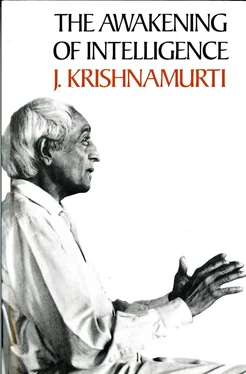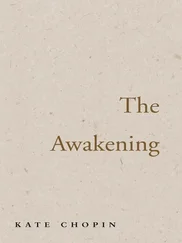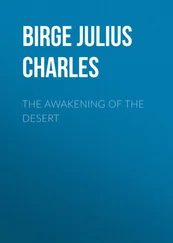Needleman: That part I see, the comparing. But my experience is that not all thought is of the same quality. There are qualities of thought.
KRISHNAMURTI: Are there?
Needleman: In my experience there are.
KRISHNAMURTI: Let’s find out. What is thought, thinking?
Needleman: There seems to be thought that is very shallow, very repetitive, very mechanical, it has a certain taste to it. There seems to be another kind of thought which is connected more with my body, with my whole self, it resonates in another way.
KRISHNAMURTI: That is what, Sir? Thought is the response of memory.
Needleman: All right, this is a definition.
KRISHNAMURTI: No, no, I can see it in myself. I have to go to that house this evening—the memory, the distance, the design—all that is memory, isn’t it?
Needleman: Yes, that is memory.
KRISHNAMURTI: I have been there before and so the memory is well established and from that there is either instant thought, or thought which takes a little time. So I am asking myself: is all thought similar, mechanical, or is there thought which is non-mechanical, which is non-verbal?
Needleman: Yes, that’s right.
KRISHNAMURTI: Is there thought if there is no word?
Needleman: There is understanding.
KRISHNAMURTI: Wait, Sir. How does this understanding take place? Does it happen when thought is functioning rapidly, or when thought is quiet?
Needleman: When thought is quiet, yes.
KRISHNAMURTI: Understanding is nothing to do with thought. You may reason, which is the process of thinking, logic, till you say, “I don’t understand it”; then you become silent, and you say, “Ah! I see it, I understand it.” That understanding is not a result of thought.
Needleman: You speak of an energy which seems to be uncaused. We experience the energy of cause and effect, which shapes our lives, but what is this other energy’s relationship to the energy we are familiar with? What is energy?
KRISHNAMURTI: First of all: is energy divisible?
Needleman: I don’t know. Go on.
KRISHNAMURTI: It can be divided. Physical energy, the energy of anger and so on, cosmic energy, human energy, it can all be divided. But it is all one energy, isn’t it?
Needleman: Logically, I say yes. I don’t understand energy. Sometimes I experience the thing which I call energy.
KRISHNAMURTI: Why do we divide energy at all, that is what I want to get at; then we can come to it differently. Sexual energy, physical energy, mental energy, psychological energy, cosmic energy, the energy of the businessman who goes to the office and so on—why do we divide it? What is the reason for this division?
Needleman: There seem to be many parts of oneself which are separate; and we divide life, it seems to me, because of that.
KRISHNAMURTI: Why? We have divided the world into Communist, Socialist, Imperialist, and Catholic, Protestant, Hindu, Buddhist, and nationalities, linguistic divisions, the whole thing is fragmentation. Why has the mind fragmented the whole of life?
Needleman: I don’t know the answer. I see the ocean and I see a tree: there is a division.
KRISHNAMURTI: No. There is a difference between the sea and the tree—I hope so! But that is not a division.
Needleman: No. It is a difference, not a division.
KRISHNAMURTI: But we are asking why the division exists, not only outwardly but in us.
Needleman: It is in us, that is the most interesting question.
KRISHNAMURTI: Because it is in us we extend it outwards. Now why is there this division in me? The “me” and the “not me”. You follow? The higher and the lower, the Atman and the lower self. Why this division?
Needleman: Maybe it was done, at least in the beginning, to help men to question themselves. To make them question whether they really know what they think they know.
KRISHNAMURTI: Through division will they find out?
Needleman: Maybe through the idea that there is something that I don’t understand.
KRISHNAMURTI: In a human being there is a division—why? What is the “raison d’être”, what is the structure of this division? I see there is a thinker and thought—right?
Needleman: I don’t see that.
KRISHNAMURTI: There is a thinker who says, “I must control that thought, I must not think this, I must think that”. So there is a thinker who says, “I must”, or “I must not”.
Needleman: Right.
KRISHNAMURTI: There is the division. “I should be this”, and “I should not be that”. If I can understand why this division in me exists—Oh look, look! Look at those hills! Marvellous, isn’t it?
Needleman: Beautiful!
KRISHNAMURTI: Now, Sir, do you look at it with a division?
Needleman: No.
KRISHNAMURTI: Why not?
Needleman: There wasn’t the “me” to do anything with it.
KRISHNAMURTI: That’s all. You can’t do anything about it. Here, with thought, I think I can do something.
Needleman: Yes.
KRISHNAMURTI: So I want to change “what is”. I can’t change “what is” there, but I think I can change “what is” in me. Not knowing how to change it I have become desperate, lost, in despair. I say, “I can’t change”, and therefore I have no energy to change.
Needleman: That’s what one says.
KRISHNAMURTI: So first, before I change “what is”, I must know who is the changer, who it is that changes.
Needleman: There are moments when one knows that, for a moment. Those moments are lost. There are moments when one knows who sees “what is” in oneself.
KRISHNAMURTI: No Sir. Sorry. Just to see “what is” is enough, not to change it.
Needleman: I agree. I agree with that.
KRISHNAMURTI: I can see “what is” only when the observer is not. When you looked at those hills the observer was not.
Needleman: I agree, yes.
KRISHNAMURTI: The observer only came into being when you wanted to change “what is”. You say: I don’t like “what is”, it must be changed, so there is instantly a duality. Can the mind observe “what is” without the observer? It took place when you looked at those hills with that marvellous light on them.
Needleman: This truth is absolute truth. The moment one experiences it one says, “Yes!” But one’s experience is also that one forgets this.
KRISHNAMURTI: Forget!
Needleman: By that I mean one continually tries to change it.
KRISHNAMURTI: Forget it, and pick it up again.
Needleman: But in this discussion—whatever you intend—there is help coming from this discussion. I know, as much as I know anything, it could not happen without the help that is between us. I could look at those hills and maybe have this non-judging, but it wouldn’t be important to me; I wouldn’t know that that is the way I must look for salvation. And this, I think, is a question one always wants to bring. Maybe this is the mind again wanting to grab and hold on to something, but nevertheless it seems that the human condition . . .
KRISHNAMURTI: Sir, we looked at those hills, you couldn’t change that, you just looked; and you looked inwardly and the battle began. For a moment you looked without that battle, without that strife, and all the rest of it. Then you remembered the beauty of that moment, of that second, and you wanted to capture that beauty again. Wait Sir! Proceed. So what happens? It sets up another conflict: the thing you had and you would like to have again, and you don’t know how to get it again. You know, if you think about it, it is not the same, it is not that. So you strive, battle. “I must control, I mustn’t want”—right? Whereas if you say, “All right, it is over, finished”, that moment is over.
Читать дальше












